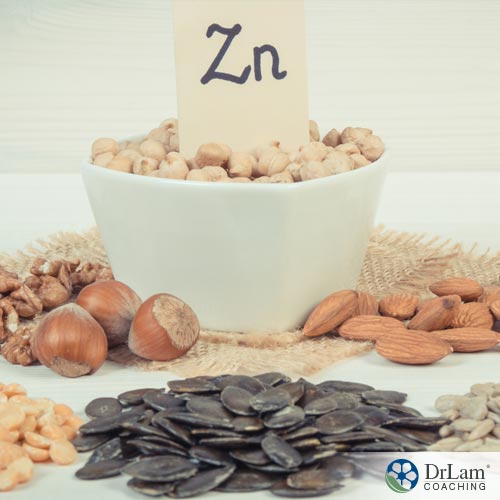There are a number of potential causes of leaky gut. The most likely cause of the condition is candida. It is also probably a precursor of gluten sensitivity, one of the factors that at least contributes to leaky gut.
Candida is a yeast that begins as one cell. As it grows, it changes, becoming something called hyphae. These are filaments that penetrate into tissue, producing enzymes that digest tissue and feed off the nutrients. It would appear that candida destroys the lining of the gut in this way, leading to leaky gut.
Other possible causes of this condition include parasites, toxins, allergens, and bad bacteria buildup. All of these contribute to or cause inflammation which then breaks down the tight junctions of the epithelial cells in the gut.
There can be no healing of the gut without removing candida, parasites, and inflammation.
Some other causes of this condition include the following:
Diet - Eating large amounts of refined flours, processed foods, sugars, and flavorings or additives puts great amounts of chemicals into your body that it considers toxins. These toxins build up and increase the inflammation that ultimately leads to leaky gut.
Chronic Stress - Under conditions of chronic stress, there is always suppressed immune functioning. Pathogens will quickly overwhelm a suppressed immune system that can’t do its regular job. Inflammation will increase, leading to more permeability of the gut lining.
Medications - If medications you take contain aspirin or acetaminophen, they will irritate the lining of the gut and lessen the effectiveness of the mucosal lining that protects it. The effect of these medications will initiate or prolong the inflammation process that then increases the permeability of the gut lining.
 Zinc - A lack of this minerals brings on a loss of strength in the mucosal lining and increased permeability of the gut lining. Research shows supplementation with zinc when it is low can increase the strength of the gut lining.
Zinc - A lack of this minerals brings on a loss of strength in the mucosal lining and increased permeability of the gut lining. Research shows supplementation with zinc when it is low can increase the strength of the gut lining.
The direct connection between the gut and the brain is not a contested fact. Research supports this finding. More and more, researchers and clinicians are finding this connection also holds true for leaky gut and leaky brain.
Just as your gut has a lining that protects you from the toxins and wastes that should stay in the intestine to be expelled from your body, your brain also has a protective lining that protects it from unwanted materials or organisms. Just as your gut can develop leaks in its lining, so can your brain.
As with the gut, the presence of antibodies against occludin and zonulin indicate a leaky barrier in the brain. Thus, finding these antibodies could suggest a leaky blood-brain barrier as well.
Another indicator of leaks in the blood-brain barrier is the presence of microRNA-155, a molecule that becomes elevated with inflammation. Researchers have found microRNA-155 to create small gaps in the barrier surrounding your brain, allowing unwanted materials and organisms access to the brain. These materials and/or organisms then trigger your brain’s immune system, resulting in inflammation of the brain. This brain inflammation is associated with depression, brain fog, anxiety, and autoimmune conditions.
 The same food allergies and gluten intolerance that lead to leaky gut can lead to leaky brain. Other factors such as alcohol and/or drugs, environmental toxins, stress, and infections all can attack the blood-brain barrier, potentially leading to leaks in this barrier.
The same food allergies and gluten intolerance that lead to leaky gut can lead to leaky brain. Other factors such as alcohol and/or drugs, environmental toxins, stress, and infections all can attack the blood-brain barrier, potentially leading to leaks in this barrier.
There are several mechanisms by which the gut and the brain communicate. One way is the selective transport of certain peptides and proteins in both directions. That is, from the blood to the brain or from the brain to the blood. Another mechanism is the way GI hormones affect the way the blood-brain barrier transports amino acids and drugs. The third mechanism is the way GI hormones influence the secretion of substances like nitric oxide and cytokines by the blood-brain barrier. These substances have an effect on appetite and feeding behavior.
Many researchers believe many chronic conditions have a common foundation in chronic brain inflammation. This is the kind of inflammation that can result from disruptions in the brain-blood barrier due to any of the possible causes above. However, there is another cause that may be more pervasive.
Antibiotics are prescribed more and more for illnesses that probably don’t need them. This leads to all of the bacteria in your body being killed within a few days to a week. When this happens, a huge load of bacterial toxins is allowed into your body’s circulatory system. This release of toxins can prime the brain for chronic inflammation. This inflammation can access your brain, leading to any of the chronic conditions discussed in this article.
There are over 100 trillion bacteria in the human body. They outnumber human cells by 10 to 1. You need these bacteria to maintain health. But within each one of them are substances you’re very allergic to. Most of the time, your body keeps these bacteria in balance, but if they become imbalanced, the substances can turn into producers of disease.
Lipopolysaccharides are fats and sugars in combination found in the cell walls of gram-negative bacteria. These LPS are researched a great deal because of their ability to quickly bring on inflammation. LPS can bring on death through sepsis if they get into the bloodstream in very high levels. At lower levels, LPS in the bloodstream can cause chronic inflammation such as that seen in neurological disorders.
LPS in the body sets in motion a cascade of strong inflammation through activation of pro-inflammatory proteins called cytokines and chemokines. These inflammatory proteins can attack the blood-brain barrier. Whether LPS can cross this barrier isn’t known. If it doesn’t, it at least acts on cells around the barrier, causing increased swelling and inflammation in the brain.
Adrenal Fatigue Syndrome (AFS) is a condition that can stimulate the conditions in your intestines that lead to leaky gut. Anytime stress enters your life, your body responds by activating the hypothalamic-pituitary-adrenal (HPA) axis. The end result of this axis is stimulation of the adrenal glands to secrete cortisol to fight the effects of the stress. Ideally, once the stress is gone, your adrenals return to a state of homeostasis. Unfortunately, stress is often continuous in our culture, leading to continuing demands on the adrenals to secrete cortisol. The adrenals then get overwhelmed by the demand and cease secreting cortisol. This begins the symptoms of AFS that can lead ultimately to debilitation.
Unfortunately, conventional medicine does not recognize AFS as a genuine health condition. Therefore, physicians trained conventionally fail to assess or remediate the condition effectively. Rather, they deal with individual symptoms or organs. A more comprehensive and effective method of dealing with AFS is through the NeuroEndoMetabolic (NEM) Stress Response approach. This method says there are six organ systems in the body that act in an interrelated way when stress hits. Evaluating each of these systems helps build a more comprehensive picture of the condition and its root causes. This allows for more effective remediation efforts as well.
 Leaky gut and AFS are related in a circular way in that one affects the other and vice versa. AFS sets the stage for leaky gut to occur, and that condition causes stress that worsens AFS. Both conditions can vary in severity and in the presentation of symptoms.
Leaky gut and AFS are related in a circular way in that one affects the other and vice versa. AFS sets the stage for leaky gut to occur, and that condition causes stress that worsens AFS. Both conditions can vary in severity and in the presentation of symptoms.
There is a mechanism by which leaky gut influences adrenal fatigue in AFS. Under exposure to stress, the digestive system decreases in function. Digestion becomes a problem, increasing the effects of leaky gut on your body. Gut dysbiosis happens and increases inflammation. The adrenals would normally excrete cortisol to reduce inflammation, but because they are depleted they cannot, increasing the stress load, hastening the fatigue, and failing to manage the inflammation.
As stress builds up, more signaling of this stress begins affecting your brain, your adrenals, and the rest of your body. Increased dysregulation of your immune system, your neurotransmitters, and your hormones is the result.
Eventually the result is autoimmune conditions, cancer, and other serious issues. Toxicity, mitochrondial dysfunction, and oxidative stress become inevitable. Fatigue, pain, depression, irritable bowel, and many others chronic conditions can then set in.
The connection between leaky gut, the brain, and AFS appears to be clear. Research is directed towards learning more about this connection. Its importance is great, especially when considering assessment and remediation of chronic health conditions are concerned. With the increasing prevalence of these conditions, it becomes more important than ever.
© Copyright 2018 Michael Lam, M.D. All Rights Reserved.

